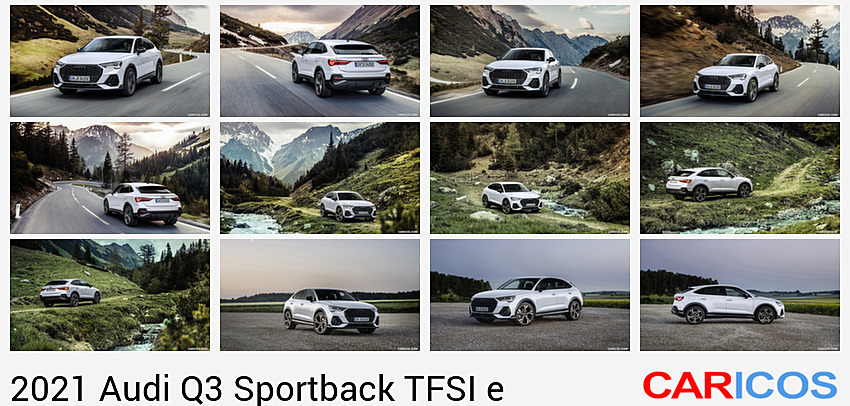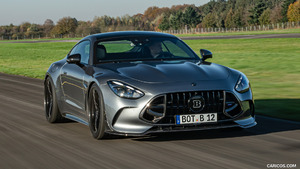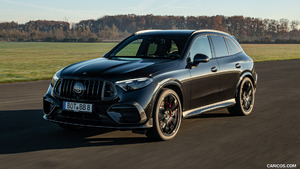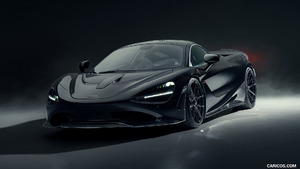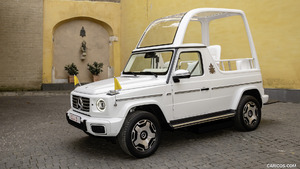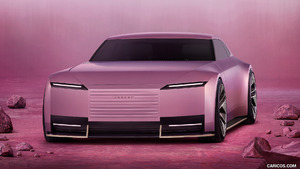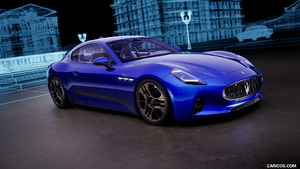2021 Q3 Sportback TFSI e
First ever plug-in hybrid Audi model in the compact SUV class combines 245PS system output with scope for emission-free travel for up to 31 miles.
- New Q3 45 TFSI e and Q3 Sportback 45 TFSI e models available to order from spring 2021
- UK OTR pricing to be confirmed closer to launch
- Q3 45 TFSI e available with Technik, S line, Black Edition and Vorsprung specification options, Q3 Sportback range will start from S line level
- Lithium-ion battery with 13.0 kWh for an electric-only range of up to 31 miles (WLTP)*
- 1.4 TFSI with 150PS joins forces to deliver 245PS system output
- 1 / 17 Audi Q3 looks to the future – The Q3 45 TFSI e is set to join the Audi range next spring as its eighth plug-in hybrid model. The standard and Sportback versions will be notable as the first ever Audi PHEVs in the compact SUV class
Another convert to the zero local emissions movement is confirmed today as the new Q3 45 TFSI e stakes its claim as the first ever plug-in hybrid Audi model in the compact SUV class. The eighth member of the flourishing electrified TFSI e family will be available to order in the UK next spring in Q3 and coupé-inspired Q3 Sportback forms, the former featuring Technik, S line, Black Edition and particularly sumptuous Vorsprung specification options and the latter starting at S line level. In both a 1.4-litre TFSI petrol engine and an 85 kW electric motor generate a system output of 245PS to enable travel without tailpipe emisions for up to 31 miles* between charges.
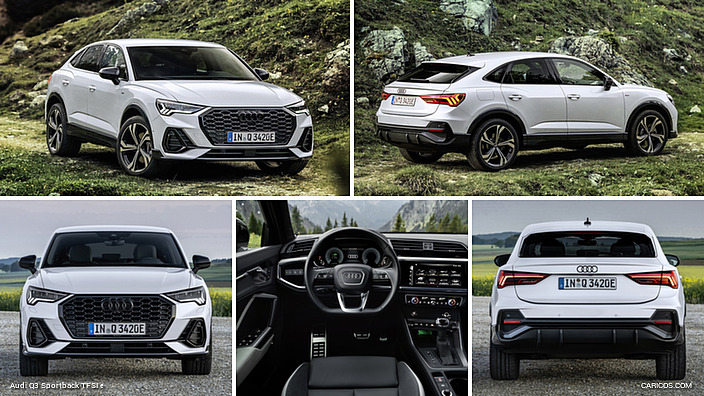 2021 Audi Q3 Sportback TFSI e
2021 Audi Q3 Sportback TFSI e
"TFSI e models are a perfect stepping stone on the path to electrification for Audi customers who are keen to play their part in the decarbonisation of our environment, but who are perhaps delaying making the leap of faith to a full EV due to lingering concerns about charging and range,“ says Director of Audi UK Andrew Doyle. "Like our other PHEV models, the new Q3 TFSI e can help to allay those concerns by proving how easily an EV can be assimilated into life, while also offering the safety net of an economical combustion engine which can greatly expand its range and refuelling possibilities if required. It’s a great way to begin gradually embracing the future of mobility.“
245 PS of system output, 13 kWh of energy capacity: the drive and the battery
The four-cylinder 1.4 TFSI petrol engine powering both new Q3 models contributes a healthy 150PS output, and this is supplemented by the 85 kW of power delivered by the permanently excited synchronous motor (PSM). Together, they generate 180 kW of system power (245 PS) and system torque of 400 Nm (295.02 lb-ft), on the strength of which both variants can reach 62mph from a standing start in 7.3 seconds and top out at 130mph.
The PSM is integrated into the housing of the six-speed S tronic transmission together with the separating clutch. This dual-clutch transmission transfers the power to the front wheels, and integrates an electric oil pump which maintains supply even when the TFSI engine is switched off to enable normal functioning and gear selection to continue.
The high-voltage battery is located under the vehicle floor in front of the rear axle and belongs to a new generation of compact and relatively lightweight units with enhanced storage capacity. Its 96 prismatic cells store 13.0 kWh of energy and maintain optimal performance with help from their own cooling circuit, which can also be coupled to the circuit used by the air conditioning system to ensure effective cooling even when requirements are at their highest.
Focus on efficiency: the drive management system
Optimal efficiency at every stage of a journey and in every scenario is naturally the overriding aim of the drive management system, so both new SUVs are always started in electric mode, except in extremely cold conditions. At low speeds, their AVAS (Acoustic Vehicle Alert System) emits an e-sound to warn other road users of their presence. Both versions can cover up to 31 miles* at speeds of up to 87mph in electric-only mode with zero local emissions according to the WLTP test.
In “Auto-Hybrid” mode, the main operating mode, the drive management system divides the tasks between the 1.4 TFSI and the electric motor intelligently and efficiently. The electric motor supports the four-cylinder engine in a wide range of situations, such as when overtaking or when accelerating from low speeds, when it uses its strong and rapidly produced torque to imperceptibly bridge the few tenths of a second needed by the turbocharger to build up pressure.
Drivers can prioritise electric drive at a touch of the EV button. The drive management system constantly evaluates data from numerous sources, including the route information from the navigation system and feedback on the immediate surroundings from the vehicle sensors, to enable it to identify when the car is approaching a town sign, a speed limit or a roundabout, or is getting too close to the vehicle ahead. When the accelerator pedal is released, the Audi Q3 45 TFSI e and the Q3 Sportback 45 TFSI e start to coast with the TFSI engine switched off in most situations.
The right mode for the right requirements: “Hold”, “Charge” and dynamic
While the drive management system intelligently exerts its influence in the background, the driver always remains in control. Pushing the EV button determines which of the auto hybrid and electric-powered driving modes is active, and at the same time provides access to others - “Battery Hold” and “Battery Charge” – offered by menus that open up in the MMI operating system at the same time. These serve to keep the battery charge at the current level or to increase the state of charge. The driver can also fine tune the response of elements including the steering, engine and transmission using the Audi drive select dynamic handling system. It offers Comfort, Auto , Dynamic and Individual profiles, and in the Dynamic setting can make the full 330Nm (243.4 lb-ft) torque reserve of the electric motor available to the driver for up to 10 seconds if the S tronic is set to “S” mode and the accelerator is fully depressed. As soon as the pedal is released again, the electric motor switches to recuperation and recovers energy in generator mode. In this way, the vehicle can also decelerate quickly thanks to its electric motor.
Irrespective of the driving profile, both models always recuperate when the driver applies the brakes. Up to around 0.3 g – i.e. in the vast majority of braking situations encountered in everyday driving – the electric motor performs the deceleration alone. It is only when the brake pedal is applied more heavily that the hydraulic wheel brakes come into play, activated by an electric brake servo. Thanks to the precise blending, the transition is practically undetectable, and the recuperation remains active. During braking, the system can recover up to 40 kW of power through the electric motor and store this in the battery.
Conveniently versatile: charging at home and on the go
The Audi Q3 45 TFSI e and the Q3 Sportback 45 TFSI e can be charged using alternating current via a domestic AC wallbox using the Type 2 cable supplied. The process can be completed in 3h 45 minutes, and can be remotely controlled using the free myAudi app, which enables the driver to define activation and deactivation times and also to remotely activate the climate control via a smartphone or tablet to pre-heat or cool the cabin before a journey begins. A mode 3 cable is also supplied for charging at public AC charging terminals, a process which can be expedited through the use of the e-tron Charging Service, which gives TFSI e drivers the opportunity to recharge at more than 155,000 charging points across Europe with just a tap of a single RFID card that generates one convenient monthly invoice.
To make light work of long journeys the comfort suspension that is standard for Technik (Q3 only), S line and Black Edition versions of the Q3 45 TFSI e and Q3 Sportback 45 TFSI e provides suppleness and absorbency for smooth, serene electric-only travel but also a good degree of agility for more press-on driving. Vorsprung versions are equipped with an electronically controlled suspension system with adaptive damping which smoothes surfaces and straightens out corners even more impressively. The standalone Q3 Technik model rides on 17-inch alloy wheels, while the SUV and Sportback move up to 19-inch rims when equipped to S line and Black Edition level, and to a 20-inch design in Vorsprung form.
From S line level upwards all models benefit from privacy glass and the exclusive S line design for the bumpers, sill trims and diffuser, while Black Edition and Vorsprung versions add a black styling pack which darkens elements such as the grille surround, window cappings, roof rails (SUV only) and door mirror housings. LED lighting is standard across the board, with Vorsprung versions upgrading to Matrix LED units for even more precisely targeted illumination. S line interior detailing is common to all specification options bar the entry level Technik, with Piano Black inlays and a flat-bottomed multifunction steering wheel setting apart the Black Editions.
True to form in the Q3 range the seats offer excellent comfort, and the rear bench is notable for offering forward and backward adjustability to prioritise luggage or passengers. Its backrests are also divided into three sections and recline at seven different angles. The luggage compartment has a basic volume of 380 litres which increases to 1,375 litres in the Q3 45 TFSI e and 1,250 litres in the Q3 Sportback 45 TFSI e when the seats are folded down.
Experts in networking: Infotainment and Connectivity
Two displays form the basis of the operating and display concept in the new TFSI e models. Centrally positioned in the instrument panel, the MMI touch unit with its 10.1 inch screen shows the operating status of the hybrid drive system and is the access point for the top-of-the-line MMI navigation plus, which is a standard feature of all UK versions. Its functions are displayed on the MMI Touch display and in the instrument binnacle by the Audi virtual cockpit with its 10.25-inch screen, which is also standard. An expanded version with additional functions - the 12.3-inch Audi virtual cockpit plus – is fitted to Vorsprung models. In both formats a powermeter can be called up to show the drive system’s operating status, output and recuperation phases, the battery’s state of charge, and the range. Functions can be activated via the central touch screen, through the multi-function steering wheel or using natural-language voice control, which can source information stored in the cloud when formulating its responses to commands.
Access to the Audi connect portfolio is included for all versions on a three-year subscription basis and supplements the navigation with Google Earth mapping, traffic information online, points-of-interest search functionality and Car-to-X services based on the principle of swarm intelligence. These include updates on available roadside parking spaces in the vicinity and notifications of upcoming hazards and speed limits sourced through the networking of the Audi fleet. Audi connect also includes media streaming, online news and access to e-mail.
The Audi smartphone interface is standard, and enables a handset‘s Apple Car Play or Android Auto environment to be reproduced on the MMI display. Vorsprung versions also feature upgrades including the Audi phone box for inductive wireless charging of mobile handsets and the Bang & Olufsen Premium Sound System with virtual 3D sound, as well as enhancements such as a panoramic glass sunroof, Alcantara and Twin leather-upholstery, front electric seat adjustment and heating and a host of additional driver assistance aids. A particular highlight among these is adaptive cruise assist, which supports the driver with acceleration, steering and braking within the limits of what is currently legally permissible, substantially enhancing comfort on long journeys in particular. These features add to a core package of assistance features for all models that includes Audi pre sense basic, pre sense front, Audi side assist blindspot monitoring and lane departure warning.
* Electric-only driving range may differ in models equipped to UK specification

